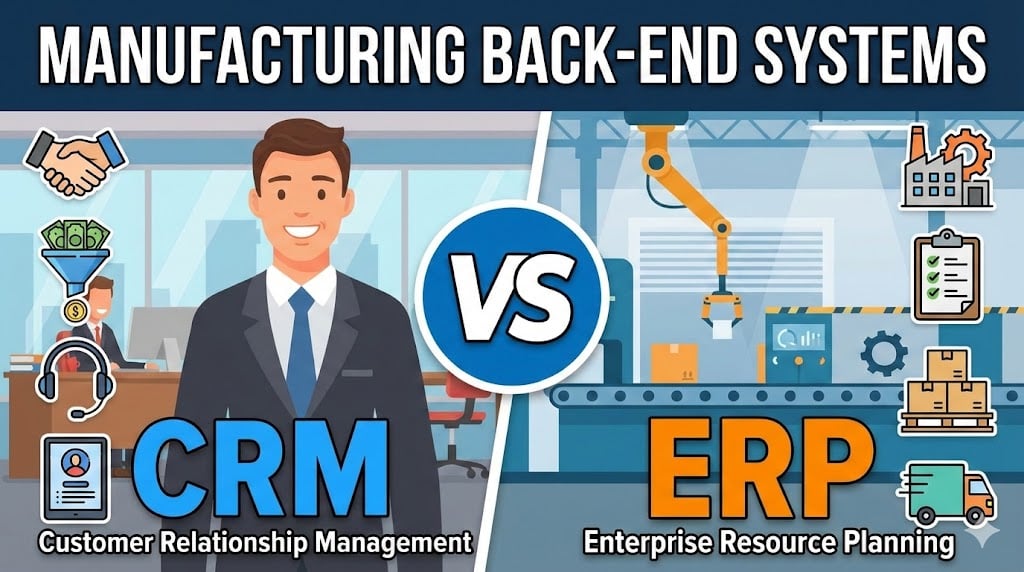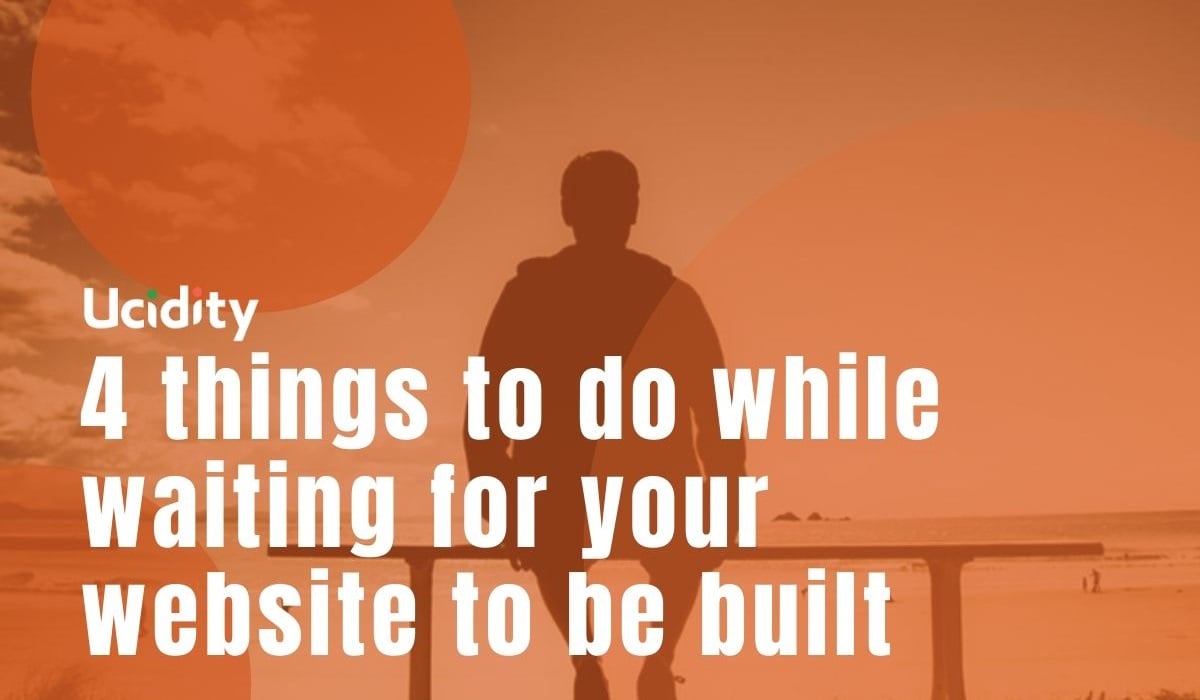
Content Marketing,Content Marketing,Content Marketing | 7 min read
Right now more than ever, it's ultra important for your website to rank well on search engines. In this article, we'll take you through the basics to ensure that your website has the best chance to show up on that coveted "page 1".
Step 1: Learn how search engines rank your website
If you haven't already, you might want to read our article which outlines how search engines work and how to get onto page 1 of major search engines like Google and Bing.
Step 2: Check the technical aspects
Stay calm, you don't need to be a web developer to perform these tasks. This list includes the basics to ensure that your website has been setup correctly:
- Search engines can "crawl" your website. There's a setting in WordPress websites that prevents search engines from crawling your site. These are sometimes switched on whilst your website is getting built, so that search engines don't find a half build website.
To confirm this is switched off, login to WordPress, then jump to Settings > Reading. In this screen, confirm that the Discourage search engines from indexing this site setting is not ticked. - There's a sitemap.xml file on your website. This is a file that a search engine reads to discover which pages - and other things like images, PDF files etc - are on your website.
Confirm that one exists by typing in [your website]/sitemap.xml, e.g. if we were to check this on our website, we would type in https://ucidity.com.au/sitemap.xml.
If your website shows an error, you probably don't have one. If it shows some code or a list of links, then you're doing well. - Search engines have "indexed" your website. There's a super easy way to check that search engines have read, or indexed, your website. To do this, jump onto Google and type in
site:[your website]
e.g. if we were to check this website, you would type in site:blog.ucidity.com.au. If you see a list of pages, then you know that Google has indexed your website. - Your website is running fast. Jump to a testing website to confirm how long it takes for your website to load. We recommend Pingdom, Experte or GT Metrix. Simply type in your website address and these tools tell you how long it takes for your website to load. 0-3 seconds is pretty good, 3-5 seconds is OK, anything more than 10 seconds is pretty bad. If your website is loading slowly, then reach out to your web developer to get advice.
The above Technical Aspects are the absolute basics. Lets read on to discover how to setup other aspects of your site to be in the running for page 1.
Step 3: Research = Better SEO (part 1)
The coveted page one of a search engine can be super easy. Type in your business name right now and you should show up on the first page - unless there's lots of businesses our there with a similar name to yours.
What you want to do now is conduct research on what you want to be ranked for. This is a tricky balance of:
- What traffic is out there. Every day there are billions and billions of searches on the internet. Some search phrases, e.g. "cheap flights" are super common under normal circumstances. Some search phrases are super rare, e.g. "how to turn a pen into a piece of Lego". You might already have an idea of what you want people to search for and find your business - but you might be surprised as to how many people actually type that phrase into a search engine. An awesome tool that we use on a regular bases is Uber Suggest. This online tool lets you type into a search phrase and uncover how many search for that phrase in a month. The thing we LOVE about this tool is that it lists similar terms - i.e. you might tweak the search phrase a little and find out there are hundreds of searches per month.
- What search terms are best for your business. Some businesses prefer less traffic to there website. What??? Imagine a legal firm that specialises in family law. They don't want to come up in search results when someone types in "intellectual property law". They might prefer to refine the type and amount of traffic that reaches their website, e.g. "legal advice for women getting a divorce".
Step 4: Structure and Content = Better SEO (part 2)
The structure of your website is crucial for search engines to help rank your website. This includes:
- How your pages are structured. Search engines need to figure out what your website is all about and the difference between a blog post and a service that you offer. As an example, you might put all your service pages underneath a single Services page - e.g. https://ucidity.com.au/services/websites/ - and have your blog posts under a Blog "category" - e.g. https://ucidity.com.au/blog/how_to_seo_your_website/ .
- How your content is structured. Once a search engine gets to a single page on your website, it needs to understand different sections of the page and the hierarchy of your page. As a simple rule
- You should only have ONE Heading 1 (H1) on your site. This is normally automatically generated in your website theme and is normally the same name as your page. TIP: search engines use these page names to determine SEO for your website - e.g. a page named "professional business websites" is more likely to rank well versus a page names "websites" - this term has a HUGE amount of competition and is very broad.
- Your content should be broken up into logical sections, each with a Heading 2 (H2) to introduce that section.
- Sub sections of content should have a Heading 3, Heading 4 etc. to introduce them.
- NEVER use headings for formatting - e.g. if you want to make text really large and bold. This confuses search engines. Use a different method, e.g. a different style or manually set the size of the text.
- How much content you have. Ideally you're creating website content that people fine really useful. Share this content via social media, monthly newsletters, in EDM's that other businesses send out etc. This will drive traffic to your website and send a signal to search engines that your website is a great resource for the topic that your content is based on. The more you do this, the more likely that you'll rank well on search engines - especially if your competition is NOT doing this. TIP: It can take 6-12 months of rigorous content writing - a few articles per month - so you'll need to have patience.
- Page metadata. Back in the day this is the ONLY thing that search engines used rank pages. Unfortunately, this metadata was easy to manipulate so search engines go smart and started "ignoring" it. But not completely. Search engines still use this data when displaying your web page in search results. This means that your Meta Title and Meta Description are super important. Why? When people are skimming through search results, determining which link to click - they'll chose based on your metadata. When you're setting a page's metadata, think about a catchy title - e.g. "Your local WordPress expert" vs. "wordpress developer crows nest". The Meta Description should also contain a paragraph with a call to action e.g. "Are you frustrated with your current web developer? Find out how to chose a web team that answers your call and speaks plan english".
Quick Wins
We've added this bonus topic here as occasionally you can get your website pages to appear on page 1 with very little effort. Here's a scenario that sometimes works really well:
- Pick a search term that not many other people are ranking for. Local search terms are great for this, e.g. "wordpress websites crows nest". TIP: if there's a LOT of other websites that rank for your search term, you're probably better off picking a different search term unless you have a large budget to invest into SEO.
- Make sure that there's enough traffic per month to warrant ranking on page 1.
- Create a page on your website that's named with the above search term, e.g. https://ucudity.com.au/services/wordpress_websites_crows_nest/.
- Add some really good content to that page, that will have a website visitor either pick up the phone and enquire about your services, or click through to another page on your website that "gets them in the door".
- Use Google Search Console to submit that new page to Google.
- Monitor the search results. You should see your page pop up to page 1 within a couple of weeks.
Step 5: Ongoing Love
SEO is RARELY set and forget. Why? Search engines are always improving how they work AND your competitors are always changing their website content. These means that you'll always be jostling for the best spot.
There's a few tools that will really help you with ongoing SEO:
- SEMrush An amazing online tool to help you monitor your rank, your competitors rankings and feedback on the performance of your website.
- Google Analytics You might want to check out our partner's blog article on how to get started with Google Analytics.
- Google Search Console. This amazing tool helps you understand a lot about your website rankings including what terms you're ranking for and how many people are clicking on the links when you show up.
We highly recommend setting up each of the above tools to monitor the performance of your website and jumping in at least once per week to confirm how it's all going.
Summary
Experts estimate that Google changes its search engine at least 500 times per year. This means that SEO requires ongoing work - it's rarely a "setup once and leave it" strategy. Your website could be on page 1 today, and suddenly drop to page 100 tomorrow. Whilst this article covers the absolute basics, we highly recommend engaging with an expert to give your website the best chance in the long term.
Do you need help with your SEO?
We totally get that SEO seems like a dark art that baffles most of the planet. That's why we've opened the doors to have a quick chat with one of our experts who speaks Plain English. Go ahead, book in a quick 15 min chat today:
Published on March 20, 2020





_Banner%20Video.jpg)